Homesteading…. whenever this word is used, many people picture a beautiful thriving garden, chickens scratching at the yard, and gentle mooing from across a green pasture.
Growing your own food, preserving your harvest, starting a home dairy, or raising your own meat animals are great homesteading options. However, one super important thing to remember about modern homesteading is that you get to pick and choose what aspects work best for your situation.
>> There is NOT a one-size-fits-all aspect to homesteading. <<
If I personally had to choose one option between all of our homesteading projects, the animals would win every time. After all, animals are the main reason that The Prairie Homestead exists today. Horses are the reason we started looking for land in the beginning and later that land turned into all these possibilities for so much more (I chat more about my love of horses in this podcast episode).
Naturally, animals are a logical progression for many homesteaders looking for more ways to become self-sustainable. There are different animal options for every experience level and each homesteading situation, so the question is “How do you know which one/s are right for your homestead?”.
Before you start adding livestock to your homestead or expanding your existing herd, I wanted to share some of the knowledge we have gained adding livestock to our own homestead.
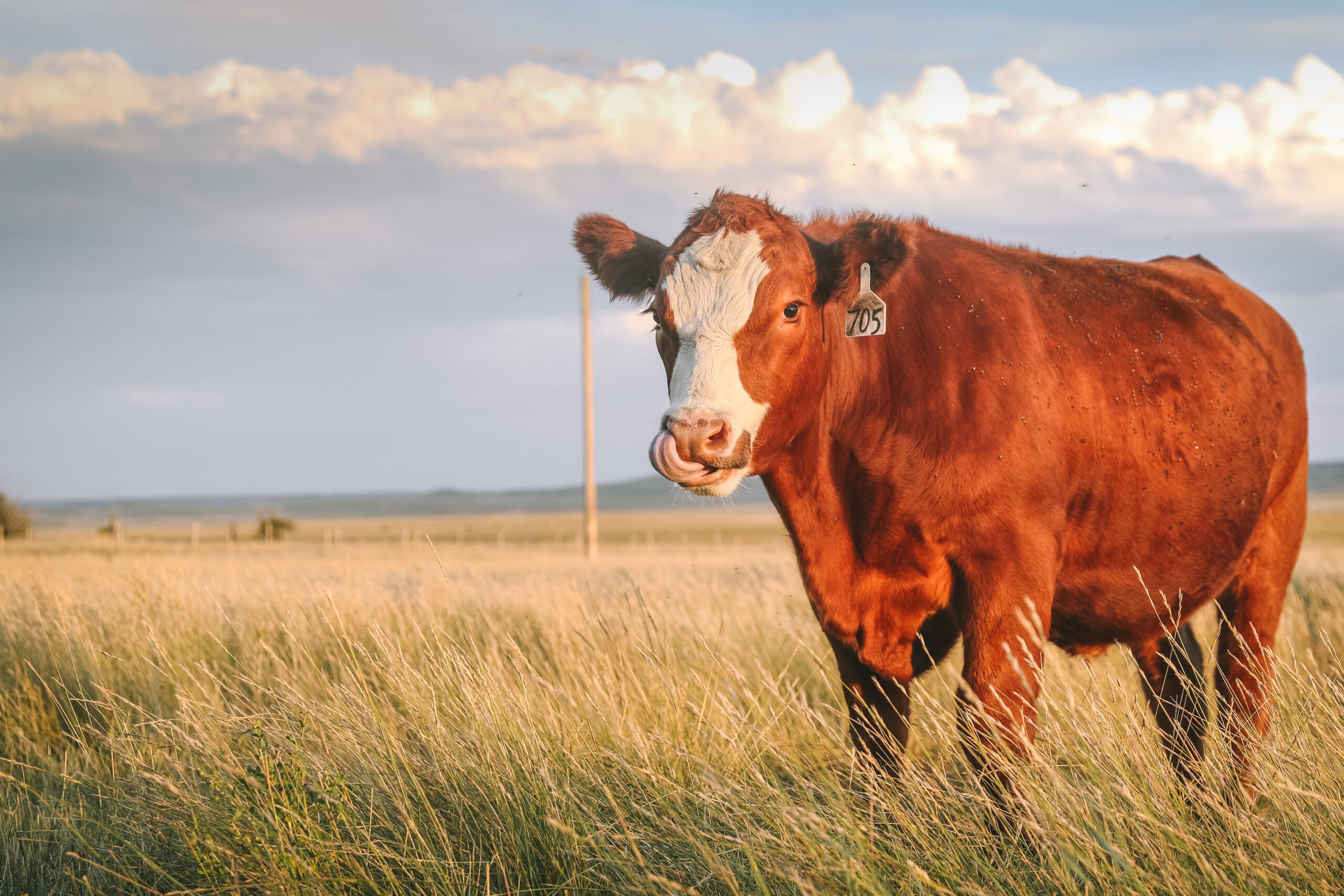
What to Consider Before Adding Livestock
When you are dreaming about your homestead, the thought of adding animals can be exciting and you may be tempted to jump right into the journey. But before you buy livestock for your homestead, there are a few things that you should consider.
1. Why Are You Buying Livestock for Your Homestead?
Adding livestock is the next step to self-sustainability, right? If you have decided that you are ready to take the next step and buy livestock for your homestead one of the first things you should think about is what their purpose is going to be.
Are they going to provide meat or eggs for your family?
- Read more about owning Laying Hens
- Read more about raising Meat Chickens
- Listen to my podcast episode about The Emotional Side of Raising Your Own Meat
Do you want a home dairy to get milk or make your own cheese?
- Watch this video to think about how to choose between a dairy cow and dairy goat
- Watch this video to get a closer look at our milking parlor
Knowing why you are adding animals to your homestead will give you an idea of what species to consider and what breeds might work best for you.
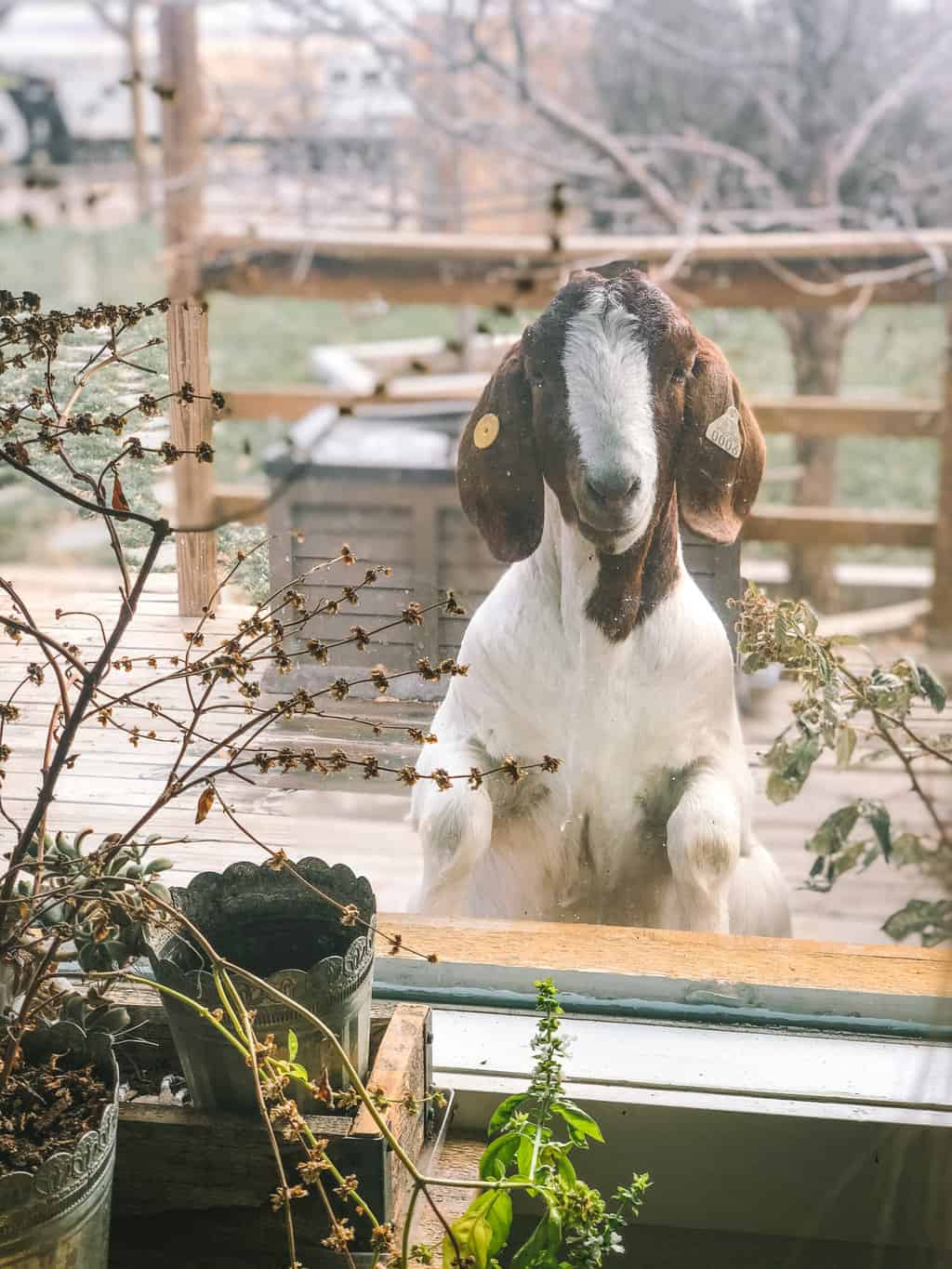
2. Are You Allowed to Have Livestock Where You Are?
Before you buy your animals, you will want to take into account your zoning and homeowners association rules. Even if you don’t have a homeowner’s association that prohibits chickens or goats, the zoning laws of your city, township, or county might. These rules can be funny sometimes, you might be able to have animals, but they can limit the amount or type you are allowed to have.
It’s heartbreaking to bring home the adorable baby goat or the chickens and then have to get rid of them a week later because it turns out that you can’t have any animals where you live. So, it is really important that you understand what your rules are first. The good news is progress is being made; more places are being allowed to have backyard chickens and sometimes even a goat or two.

3. How Many Animals and Do You Have Enough Space?
A chicken isn’t going to need the same amount of space as a goat or cow, but 50 meat chickens will need more space than 5 laying hens. It really all comes down to the type of animal, the number of animals, and the amount of space you have to offer. Overall, the amount of space you have will determine what will work best for your livestock options.
If you need help figuring out your homestead layout and space, check out my FREE handbook on designing your dream homestead.
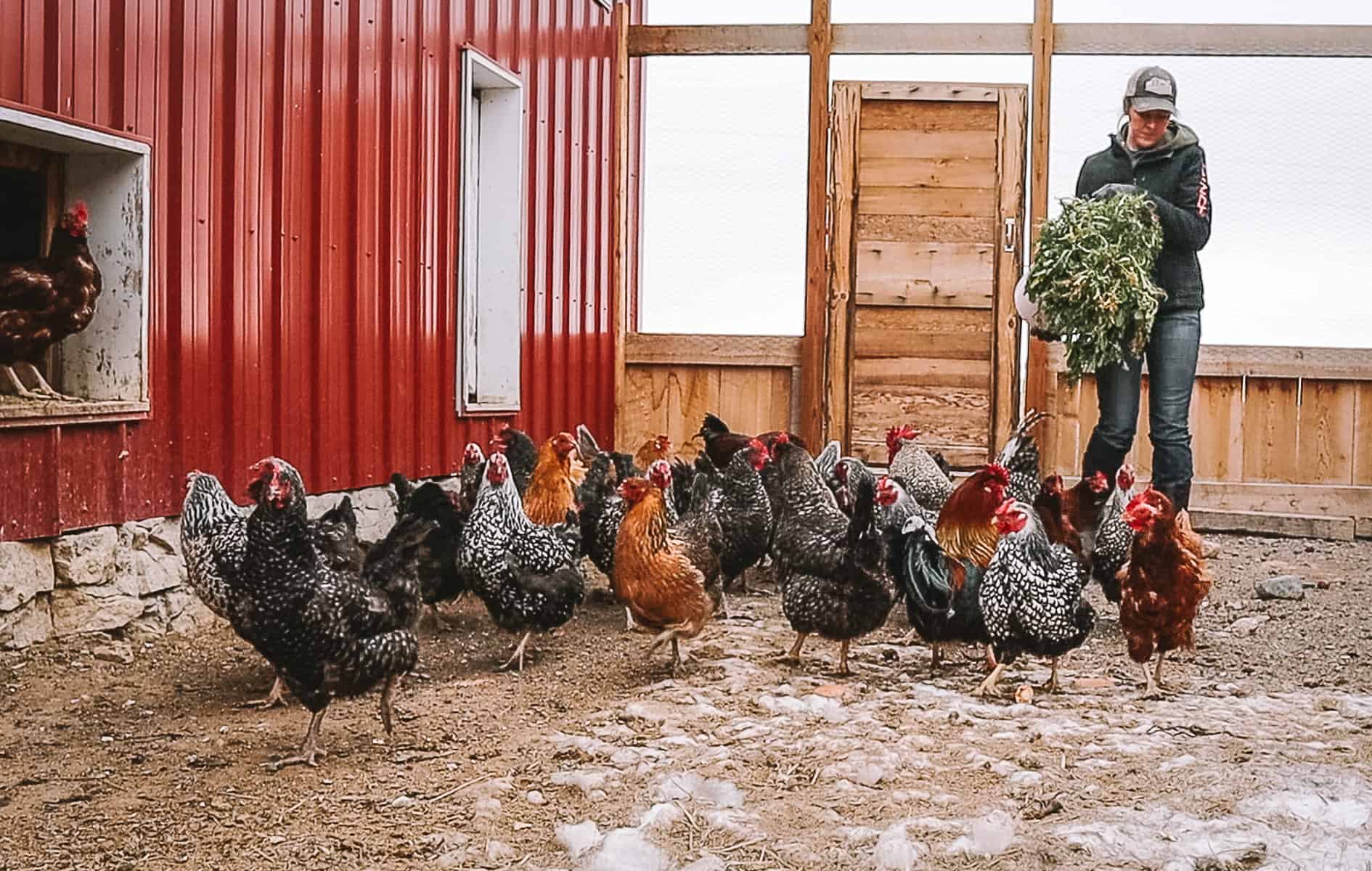
4. Are You Able to Provide Shelter and Water?
When you are thinking about adding animals to your homestead you need to figure out if you have an adequate shelter for the type of animals you are planning to add. A shelter is important and the type you use really depends on your climate. Your shelter is in place to provide a dry shaded area in warmer climates and keep them warm in cooler climates.
When you are deciding on your shelter you may want to consider an area where you can add electricity. If your shelter is going to be enclosed, you may want to run a fan in extreme heat or heat lamps if it gets extremely cold. Other items that you might use electricity for our tank heaters or heated buckets if you live in a climate where your water will freeze.
In my experience, it is much easier to have a shelter already in place BEFORE you bring home your animal. If you bring your animal home first, you are left scrambling to find something to use for shelter.
A part of providing shelter is also having an area where you can provide your animals with water. Depending on the animals you choose it can be a small bucket or a huge tank, you will need to be able to fill them either way. Hauling water is always an option but after a while, this chore can become a bit much, especially if you are doing it in the dead of winter. Try and find an area for your shelter that is as close to a water source as possible.
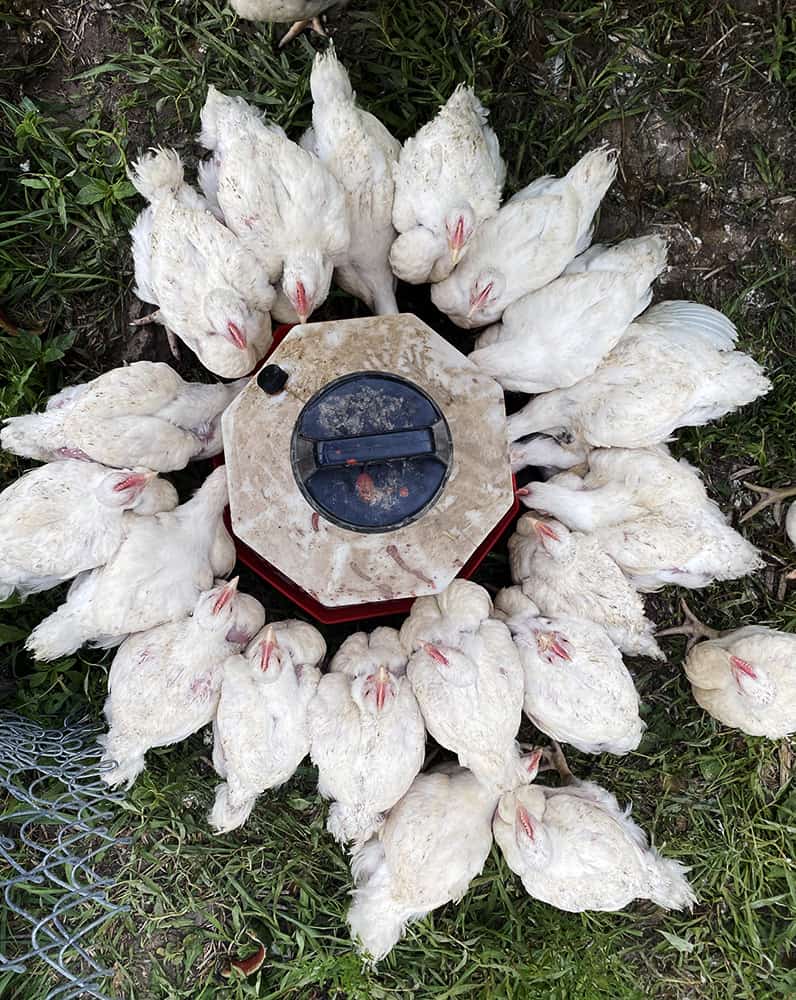
5. Can You Provide Feed for Your Livestock?
You know that you will need to feed the livestock you are adding to your homestead, but have you thought about the cost or what feed is available to you? What works for someone else’s homestead might not work for yours, the area you live in and the amount of space you have can help you determine your costs and what resources you will have available.
For example, if you have pasture land, then you won’t have to purchase as much hay for grazing animals. On the other hand, if you can only provide an acre of grass, then you will need to feed hay year-round (hay can be expensive and the price can vary year to year).
I have occasionally witnessed folks who impulse-buy chicks in the spring and then later, when they are grown, feeding them doesn’t fit into the budget anymore. It is very important that you understand what the long-term costs of feeding your animals are going to be. If you are worried about your budget, there are ways that you can try and cut some of those costs.
There haven’t always been feed stores available to provide bagged feed, so there are ways to provide creative options without sacrificing your animal’s nutrition. Here are 20 Ways to Save Money on Chicken Feed that might help get you started.
In today’s economic climate, things are more uncertain and the increase in the price of feed has been one result. If you are interested in learning more about how to keep livestock during these uncertain times, then my new course The Recession Proof Homestead could be very beneficial for you.
6. What is the Life Span of Your Animals?
Considering how long you will have with your animals has to do with feed costs, but also vet bills and end-of-life care. If your sole purpose is to provide meat for your family, then the life expectancy of your animals is relatively short compared to a laying hen or dairy animal. You will be butchering your meat livestock when they are the right age or weight.
If you are looking for dairy animals, then you will want to think long-term. For example, the average dairy goat can live to be 15 years old so you will be required to feed them and provide medical care for the long haul.
7. Consider the Amount of Time and Work
When you are choosing to add livestock to your homestead, remember that you will always have livestock chores that require your time. The basics are feeding, watering, and cleaning pens, and if you have dairy animals, this might mean milking once or twice a day. Think about the amount of time you have to set aside for chores and consider the amount of work you are able to put in.
- Read more about My Top Homestead Time Management Tips
- Learn about Practical Ways We Save Time On Our Homestead
- Learn How to Organize Your Homestead with a Planner
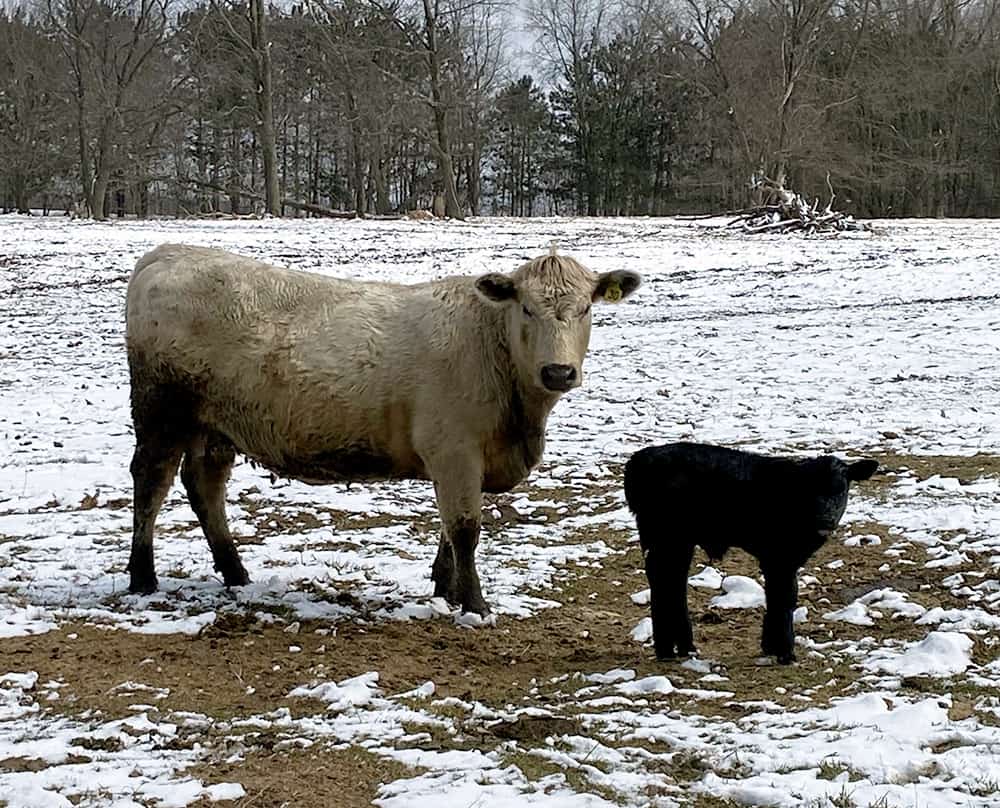
Where to Find Livestock for Your Homestead
Now that you have considered everything that adding livestock to your homestead will entail, let’s talk about how to actually find your animals. There are quite a few ways to search for your new animals now that the internet is around. You can try the following ways:
(1) Craigslist and Facebook
- Craigslist often has a ton of local livestock ads and you can search right around your area for what you are looking for. I used craigslist to find our goats and our first dairy cow Oakley.
- Facebook Groups – In recent years this has been a little more tricky, but there are still groups that sell animals and you can find local connections through very-localized homesteading groups on facebook.
These two places where you can find animal ads really help with not limiting you to just your local area, and you can choose how far you will travel to get the right animal for your homestead. These internet sources also allow you to look for animals of all ages. You can decide if you want to start a the beginning or look for a more mature animal and skip the baby phase altogether.
(2) Order From Online Hatcheries
Another online option that many people use is very specific to poultry. You can purchase your chicks and sometimes breeding pairs from online hatcheries. You place your order on the hatcheries website, they give you the arrival date and your chicks are shipped to your local post office for pickup.
I personally have had a few issues with having chicks shipped by mail, so I tend to lean more towards buying what the feed store has to offer.
(3) Local Feed Store Chick Days
Another way to find poultry specifically is during your local feed store’s chick days. For those of you that don’t know, this is a time in the spring when feed stores have an inventory of adorable chicks in their stores for people to purchase. The downside is that the feedstores usually have limited stock and only a few varieties.
(4) Local Bulletin Boards
Local stores sometimes provide bulletin boards where people can post classified ads. I would check your feed store and vet office for these types of classified ads.
(5) Friends and Local Farms
The most obvious and easy way to find animals in your area is through your homesteading community. Ask friends, folks at farmer’s markets, and local farms about their animals and if they will have any available. This is especially good for buying dairy animals, since you not only are buying an animal but you can usually count on all the information you could need. Learn how to find local food sources here.

Things to Consider to Make Buying Livestock Less Stressful
You have considered all the possibilities and are now on the hunt for livestock to add to your homestead. This is an exciting time but don’t get caught up and impulse-buy the first animal you see for sale. When you are buying an animal, you should do your homework.
(1) Know What Breed is Best For Your Homestead
You should have an idea of what livestock breed is best for your homestead. For example, not all chicken breeds are the same: some can be docile and others a bit aggressive. And if you are comparing dairy cow breeds, you may want to look at the amount of milk a breed produces.
It really depends on what you are looking for when you are buying livestock for your homestead.
(2) Find an Experienced Buyer or Friend to Help
A good place to start is to find someone with experience buying the breed of animals you are interested in and asking them what you should know before taking an animal home. The questions you need to ask may be different depending on what the animal is and what its’ purpose is going to be on your homestead. For example, you probably don’t really care about the milk production of a beef cow or a meat breed chicken’s laying ability.

(3) Check if the Animal is from a Clean Herd
There are different diseases that each species can be tested for annually. A clean herd means that your potential animal’s herd has been tested and is disease-free as of the testing date. Each species has its own different tests and diseases that are looked for. For example, it is common for goats herds to be tested for CAE and CL which are highly contagious incurable diseases.
Also, if you already have some livestock at home and you’re bringing in new animals, make sure you quarantine the newbies for a bit so that you know for sure that they aren’t bringing new diseases to your homestead.
(4) Registered or Unregistered Animals
Having registered stock isn’t always an important thing to look for, but if you are buying dairy animals, the babies will probably eventually need to be sold. It sometimes can be easier to sell purebred animals and the registration is proof on paper. For example, in our first year of homesteading, we bred our milk cow to a beef bull, so the resulting baby was a brown swiss cross, and there wasn’t much of a market for half-dairy, half-beef cows. The following year we used Artificial Insemination to get a pure brown swiss calf and it was amazing how quickly it sold.
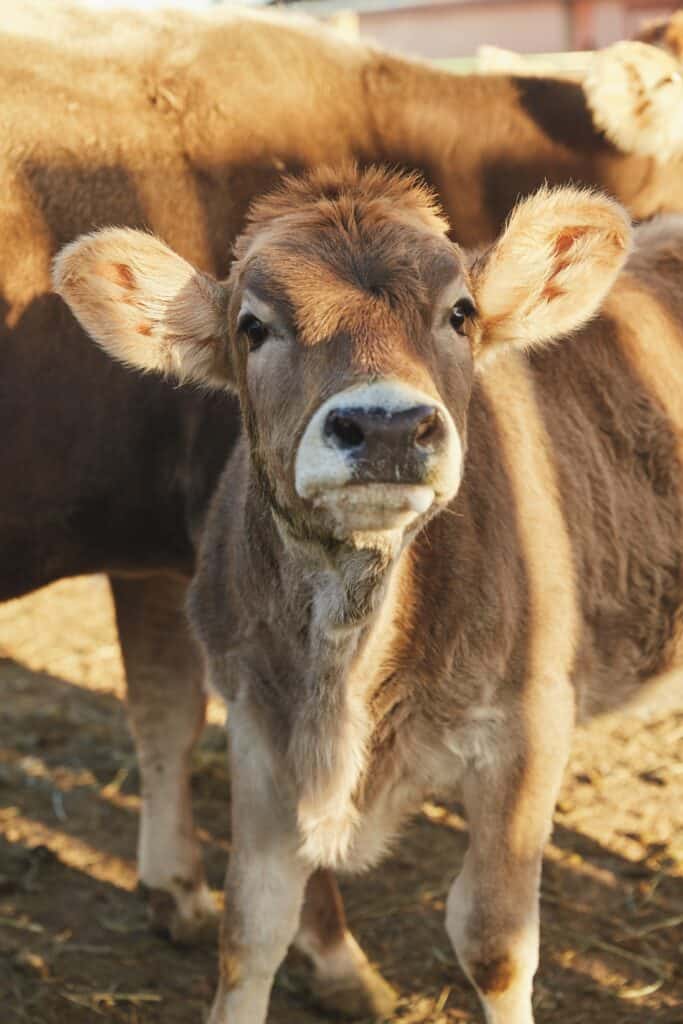
Are You Ready to Buy Livestock for Your Homestead?
Making the decision to add livestock to your homestead can be an exciting time for you and your family. But before you bring home your animals, be sure you consider every aspect and do your homework. There is no one size fits all solution when it comes to what animals are best for homesteading. Your decisions should be based on your area, what you are allowed to add, and what you are able to provide for your livestock.
More About Homesteading:
- How to Afford a Homestead
- How to Start a Homestead From Scratch
- Homemade Chicken Feed Recipe
- Managing Homestead Livestock in Winter




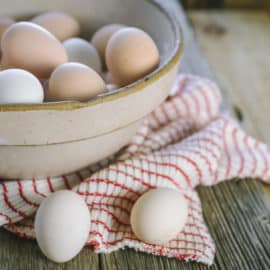
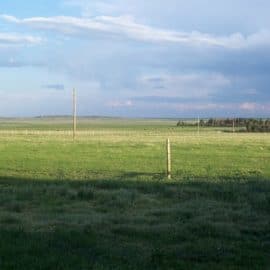
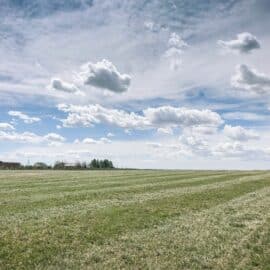
That part about animal shelters being close to water is no joke! Our farm was NOT laid out the best when we first came to it, and we were carrying buckets quite a ways for a while. It’s good exercise, but wowza! Right now, I’m dreaming of getting a jersey cow. We’ve got goats, chickens, and lots of barn cats. We’ve done beef for meat, but I’ve been practicing some skills with raw milk, and my confidence in handling dairy is growing. I’m linking to a funny story about me chasing down one of our goats when we first got her. What chaos that was LOL!
My father recently invested in a farm property that he wants to use for raising livestock now that he is officially retired. I appreciate you informing us that different states and cities have their own zoning laws regarding raising livestock, which is why we should make sure first our area allows them. I’ll keep this in mind while I help him look for a livestock breeder to get in touch with soon regarding the cattle he wants to raise in his farm.